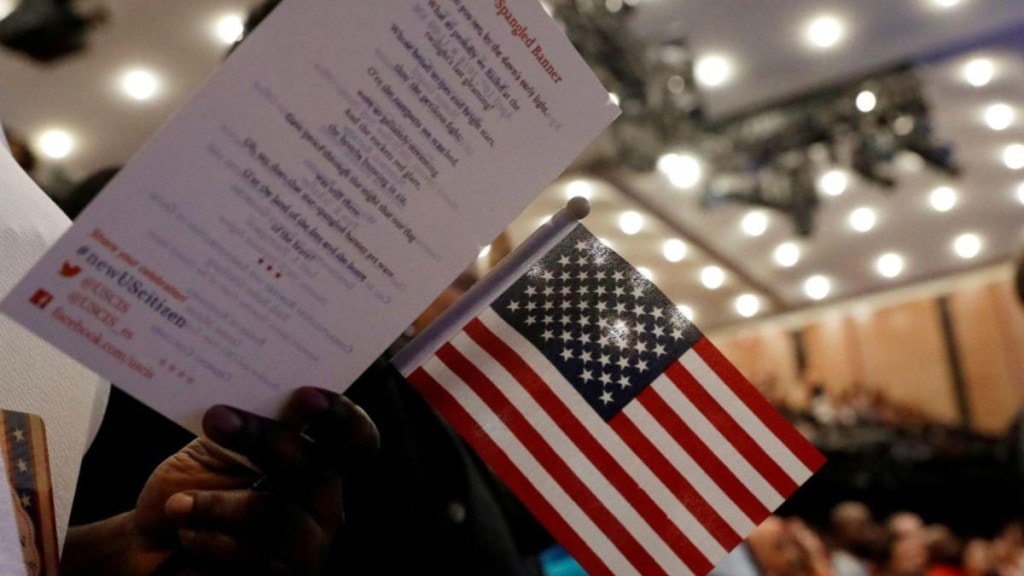A part of the test to become a naturalised United States citizen has become significantly more challenging under the Trump administration. In an official notice by the US Citizenship and Immigration Services (USCIS), new rules will affect applicants who submitted their applications on or after October 20, 2025. The updates increase the number of civics questions, raise the passing score and introduce a provision allowing tests to end early.
The USCIS explained that the changes aim to ensure applicants fully understand US civics, including the Constitution, laws, history and principles of government. The agency said the revisions also promote a “unified American identity and attachment to the Constitution, laws and founding principles of the United States”.
What are the new changes?
Under the new rules, applicants must answer 20 civics questions instead of 10, with a minimum of 12 correct answers required to pass. This is double the previous passing score of six. USCIS has instructed administrators to end the tests immediately if an applicant either answers 12 questions correctly or gets nine wrong.
The total question pool has increased from 100 to 128. The topics covered will now include the US Constitution, the roles of Congress and the President, key moments in US history, the Declaration of Independence, original US states, national holidays and pre-European inhabitants of America.
Who all will be impacted by the revisions?
Applicants who filed before October 20, will still take the older 2008 version of the test. Certain applicants aged 65 or older with at least 20 years as lawful permanent residents may take a simplified 10-question version drawn from either the 2008 or 2025 question banks. English proficiency, including reading, writing, speaking and comprehension will remain a mandatory component of the naturalisation process.
In an interview last month with the Centre for Immigration Studies, USCIS director Joseph Edlow explained that the previous test was “just too easy” to pass. “We need to make it a little bit more challenging. We’ve got to make sure that people are actually understanding what it means to be a US citizen, what it means to get that benefit,” he had said.

